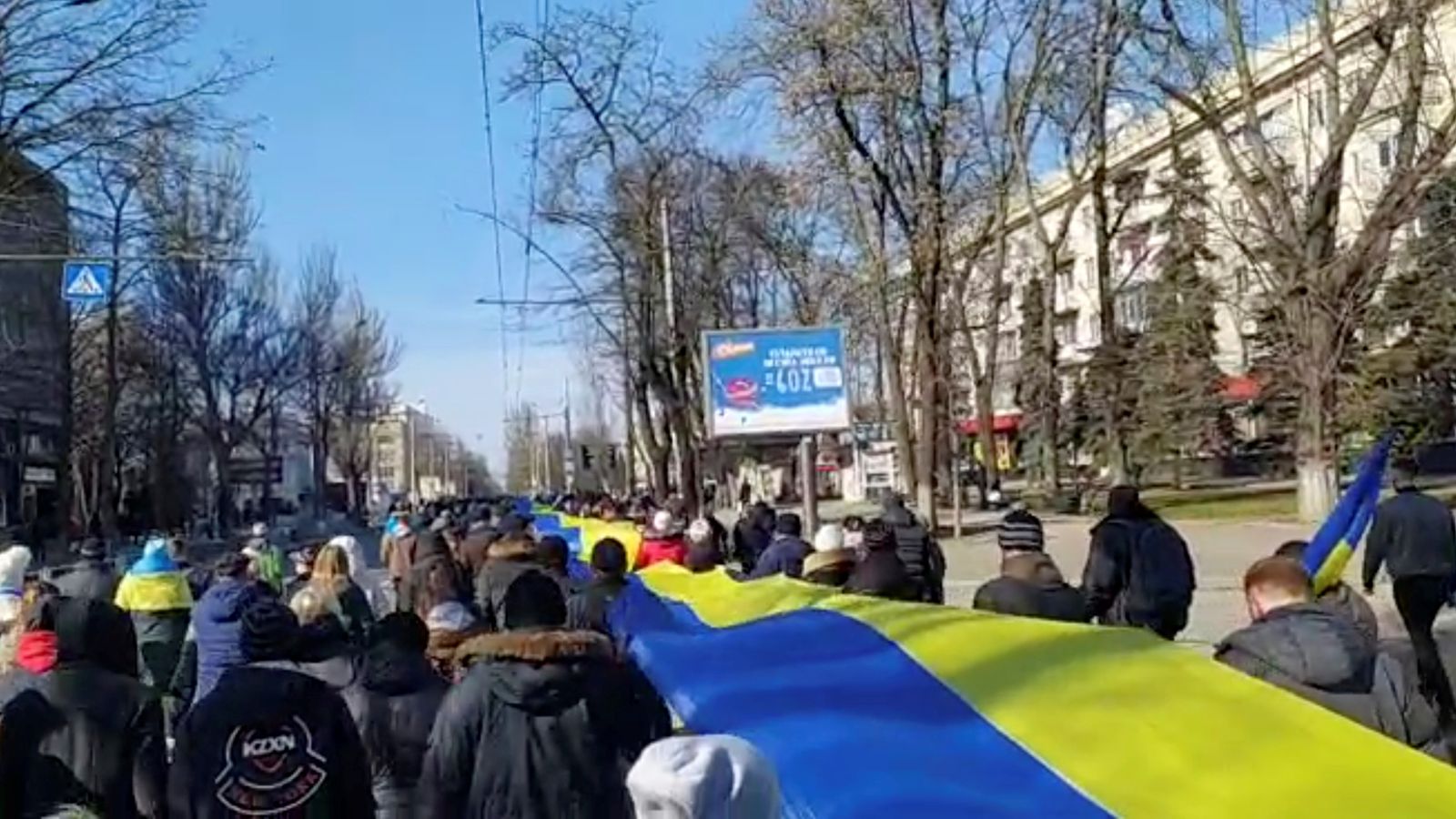Russian troops have been ordered to withdraw from the city of Kherson and surrounding areas in the south of Ukraine.
Russia’s top commander in Ukraine, General Sergei Surovikin said it is no longer possible to supply the city and other parts of the west bank of the Dnipro River that it sits on.
In televised comments, he said: “We will save the lives of our soldiers and fighting capacity of our units.
“Keeping them on the right (western) bank is futile.
“Some of them can be used on other fronts.”
Russia’s defence minister Sergei Shoigu responded by saying: “I agree with your conclusions and proposals.
“Proceed with the withdrawal of troops and take all measures to transfer forces across the river.”
The announcement marks one of Russia’s most significant retreats and another humiliating setback.
Read more:
British man dies fighting in Ukraine
Ukraine war latest: Russia suffers major setback – but Putin ‘not talking about it’
Kherson city, which had a pre-war population of 280,000, was seized by Russia early in the war and it remains the only regional capital to have fallen.
Kherson region was annexed in September, along with three other Ukrainian regions – Luhansk, Donetsk and Zaporizhzhia.
Ukraine’s president Volodymyr Zelenskyy has said a number of times that the return of all occupied territory is a condition for any peace talks with Russia, but Russia is unlikely to agree to this.
Ukrainian troops launched attacks during the summer in an effort to take back parts of the province.
Mikhailo Podolyak, an adviser to Mr Zelenskyy, said: “It’s necessary to separate words from deeds.
“Until the Ukrainian flag is flying over Kherson, it makes no sense to talk about a Russian withdrawal.
“Ukraine does not take these statements (by Russia) into consideration.
“It is still too early to talk about the withdrawal of Russian troops from Kherson: a grouping of the Armed Forces of the Russian Federation is being maintained in the city, and additional manpower is being pulled into the region.”
He added: “Our armed forces work according to their plan: reconnaissance, risk assessment, effective counterattack.”
